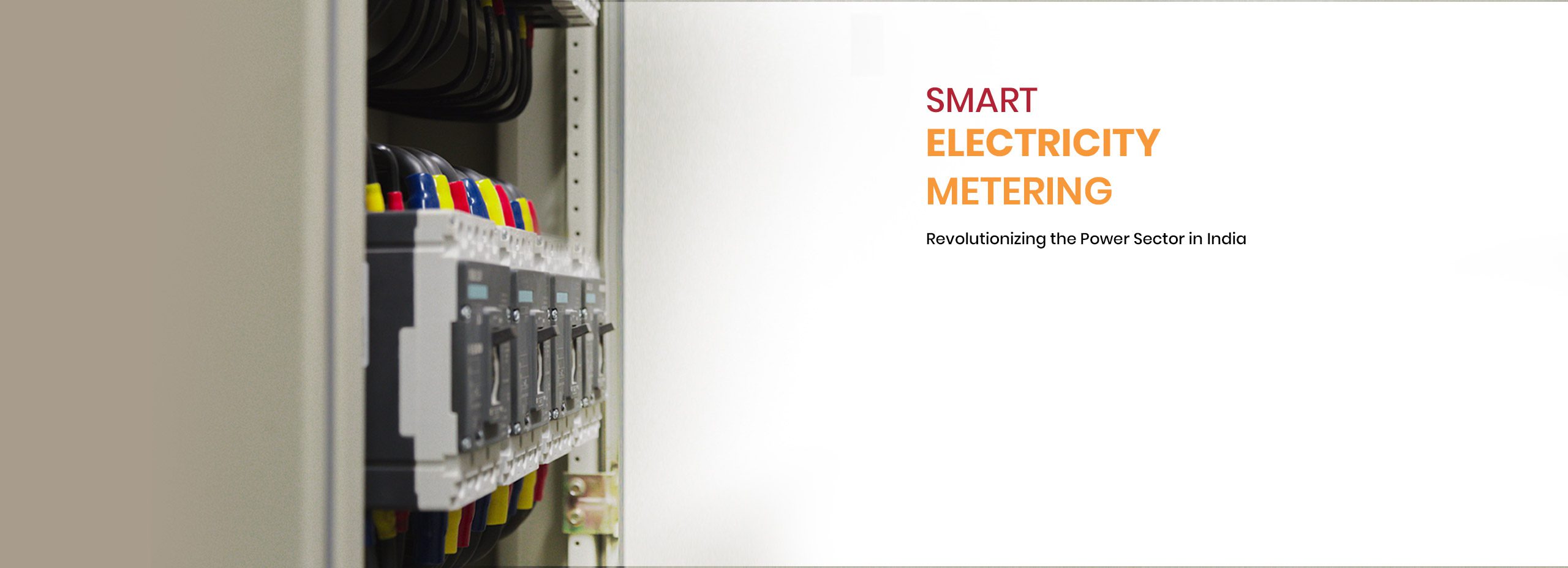India is on a cusp of a major digital revolution. As per a report by Nielsen and the Internet and Mobile Association of India (IAMAI), there are close to 451 million internet users in India with a nearly equal division of users from urban & rural India. Growing literacy rate, surging smartphone adoption, and availability of affordable mobile internet are some of the leading factors behind the growth of the ‘digital revolution’.
Make in India, a government-led initiative is instrumental in revolutionizing the mobile phone manufacturing sector as major smartphone players are now manufacturing their phones in India. Digital India is another critical initiative that is being executed by the government to make the country digitally empowered in the field of technology. As per the Conference of the Parties (COP21) climate-change agreement, India aims to reduce the carbon footprint by 33-35% by 2030.
The Aggregate Technical & Commercial (AT&C) losses in India are three times the deficit.
AT&C Loss = (Energy input – Energy billed) * 100 / Energy input
The Ujwal DISCOM Assurance Yojna (UDAY) scheme was formed for the financial turnaround and revival of the struggling power distribution companies (DISCOMs).
The major focus of UDAY 2.0 is reducing power-theft or leakages which are done by tapping the power lines or tempering with the electric meters, the major factors contributing to the DISOMs losses.
Usage of smart electricity meters can be a win-win situation as it offers something significant to all the stakeholders in the value-chain:
- DISCOMs – Reduction in operational costs due to avoidance of instances related to electricity theft.
- Consumers – Accurate bills, insightful information about electricity usage through a mobile application.
- Climate – Usage of smart meters helps its consumers to lower energy emissions by reducing energy consumption. This leads to lower energy bills and reduced carbon footprints, thereby creating to a positive environmental impact.
Smart electricity meters/Advanced Metering Infrastructure (AMI) is not only beneficial for the consumers, power distribution companies but also contributes to the ‘Green’ initiative which is an important aspect of the ‘Smart Cities’ initiative.
In a nutshell, smart meters have the following advantages:
- Provides the consumers with highly accurate & timely billing.
- Provides an opportunity to the consumers for optimizing the bill amount via tracking & analyzing the usage patterns.
- Encourages consumers to switch between conventional and renewable energy resources.
- Enables the consumers to be well-prepared for electric outages.
- Reduces the friction involved in move-in/move-out scenarios.
- Minimizes the timeline involved in the generation of meter-to-cash due to the
timely generation of bills. - Reduces manual dependency on bill generation, bill collection, etc.
As the smart electricity meters are equipped with communication capabilities (GSM/GPRS/RF), it even facilitates remote meter-reading, as well as remote connection/disconnection of electricity. Hence, there is less number of personnel required for the on-field job since there is reduced manual dependency on bill generation, bill collection, and other billing-related activities.
Increasing smartphone adoption has also led to the thinning of the rural and urban divide. Hence, there lies an immense opportunity to equip rural India with smart meters. With smart energy meters, citizens in rural India can enjoy improved power quality with shorter outage durations and flexible payment options. As many rural households have distributed solar photovoltaic panels installed on their rooftops, smart electricity meters can be used for net metering i.e. transferring the surplus solar power to the grid.
There is a huge potential for smart metering in India with close to 200 million legacy meters installed currently . The good news is that consumers need not buy smart meters as they can still use their existing meters to leverage the positives of smart metering. There are plans of installing up to 130 million smart meters by 2021 and the government is planning to invest up to $21 billion till 2025 in smart grid technologies to realize this target.
Energy Efficiency Services Limited (ESSL) is driving to implement the Smart Meter National Programme (SMNP) under which it plans to replace 25 crore conventional meters (legacy meters) with smart meters across India. The first phase of the programme was launched in Haryana & Uttar Pradesh and the results have been highly encouraging!
TekGeminus has numerous years of experience in the utilities market and has executed several business-critical programs for its global customers. We have capabilities in the development and deployment of smart grid applications like AMI, customer registration, meter registration, and Billing & Payment systems. We have expertise in re-designing legacy billing systems to integrate with smart meter applications.
We, at TekGeminus, are excited about the initiatives related to smart metering in India as it will have a monumental impact on the Indian citizens, environment, and economy.



